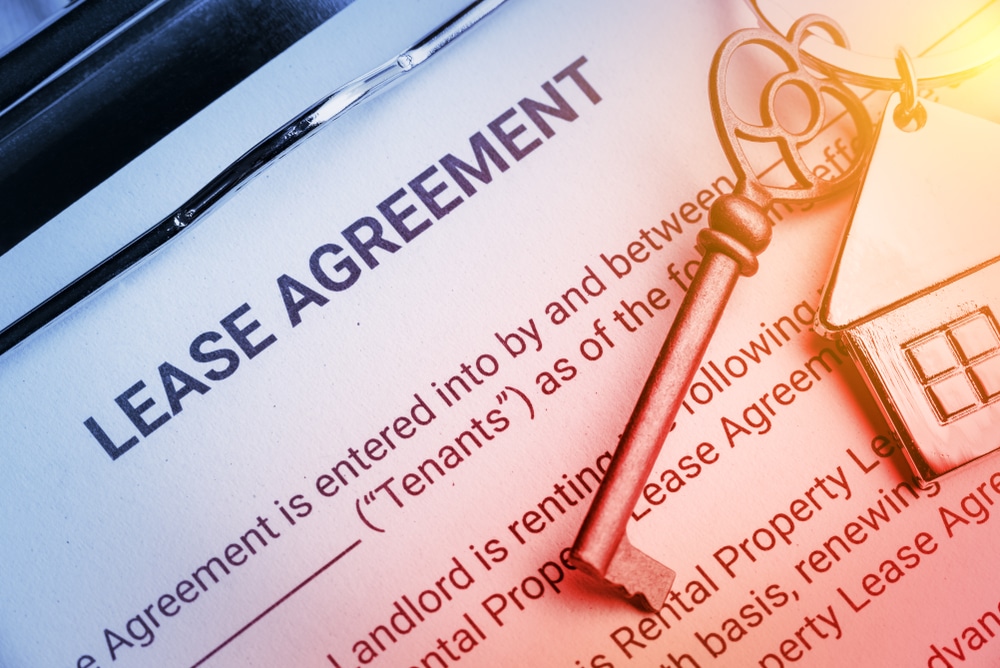As Illinois foreclosure defense attorneys, we understand that landlords face a wide range of financial risks, particularly when rental income is crucial for paying a mortgage. Strong lease agreements are one of the most effective tools landlords can use to safeguard their property and financial security.
Without clear lease terms, disputes with tenants can escalate into missed payments, costly litigation, or even foreclosure proceedings. Under Illinois foreclosure law, the stability of rental income plays a crucial role in helping landlords stay current on their mortgage obligations. That is why a well-drafted lease is more than just paperwork, it is a layer of protection against both tenant defaults and potential foreclosure.
Lease agreements in Illinois must comply with the Illinois Mortgage Foreclosure Law (735 ILCS 5/15-1101 et seq.), which sets forth the process for foreclosure proceedings. When tenants default or fail to pay rent, landlords may struggle to make timely mortgage payments.
In foreclosure cases, courts often review the existence of valid lease agreements to determine rights and obligations for both landlords and tenants. By ensuring leases are properly drafted and enforceable, landlords create evidence of income streams that can be presented in foreclosure defense strategies.
Key Elements Of Strong Lease Agreements
A strong lease should include clear payment terms, provisions for late fees, guidelines for security deposits, and details regarding maintenance responsibilities. Illinois law regulates security deposits under the Security Deposit Return Act (765 ILCS 710/1 et seq.), requiring landlords of certain properties to return deposits promptly and provide itemized deductions when applicable. Compliance with these statutes not only avoids penalties but also strengthens the landlord’s position if disputes arise.
It is equally important to include terms that address default and eviction procedures. While Illinois law requires landlords to follow the Illinois Forcible Entry and Detainer Act (735 ILCS 5/9-101 et seq.) for evictions, having lease terms that define what constitutes default gives landlords additional clarity and protection.
Protecting Against Foreclosure Risks
When landlords rely on rental income to cover mortgage obligations, tenant defaults can lead to financial instability. If a landlord falls behind on mortgage payments, foreclosure proceedings under 735 ILCS 5/15-1101 et seq. may begin. Strong lease agreements can mitigate this risk by creating enforceable obligations that facilitate the collection of rent, recovery of damages, and prompt eviction proceedings if necessary.
Additionally, in some foreclosure cases, courts examine whether leases are bona fide and enforceable. A strong lease helps demonstrate the legitimacy of the landlord’s rental business and may preserve tenant occupancy rights even if foreclosure proceeds. This can protect both landlords and tenants during difficult financial times.
Frequently Asked Questions About Lease Agreements And Foreclosure In Illinois
How Does A Strong Lease Agreement Help Prevent Foreclosure?
A strong lease agreement creates enforceable obligations for tenants to pay rent on time. Reliable rental income allows landlords to meet mortgage payments, reducing the risk of foreclosure under 735 ILCS 5/15-1101 et seq. Without a strong lease, landlords may struggle to enforce tenant obligations.
What Terms Should Be Included In A Lease To Protect Landlords?
Essential terms include clear rent payment schedules, late fee provisions, maintenance responsibilities, default clauses, and security deposit rules. These provisions help landlords enforce tenant obligations and reduce disputes that could disrupt rental income.
How Does Illinois Law Regulate Security Deposits?
Under the Security Deposit Return Act (765 ILCS 710/1 et seq.), landlords of certain residential properties must return security deposits within set timeframes and provide itemized lists of deductions. Compliance with this law avoids penalties and strengthens the enforceability of lease terms.
Can A Landlord Evict A Tenant During Foreclosure?
Yes, but eviction must comply with the Illinois Forcible Entry and Detainer Act (735 ILCS 5/9-101 et seq.). Landlords must follow proper legal procedures even if they are facing foreclosure. A clear lease agreement helps define what constitutes default, making eviction proceedings more straightforward.
What Happens To Tenants If A Property Goes Into Foreclosure?
If a property is foreclosed under 735 ILCS 5/15-1101 et seq., tenants with bona fide leases may retain occupancy rights for a period of time. Having a properly drafted lease ensures tenants’ rights are recognized, while also demonstrating that the landlord maintained a legitimate rental business.
Why Should Landlords Seek Legal Guidance When Drafting Leases?
Legal guidance ensures compliance with Illinois statutes and creates enforceable contracts that hold up in court. A poorly drafted lease can expose landlords to disputes, penalties, or foreclosure risks if rent payments cannot be enforced effectively.
Call Covert Marrero Covert LLP Today
At Covert Marrero Covert LLP, we know how important strong lease agreements are in protecting landlords against foreclosure risks. Our attorneys help landlords across Chicagoland draft and enforce leases that comply with Illinois law while safeguarding their financial security.
Contact our Illinois real estate lawyer at Covert Marrero Covert LLP by calling us at (630) 717-2783 to schedule your initial consultation.. With offices in Warrenville, Schaumburg, Naperville, and Joliet, we proudly serve landlords throughout the Chicago metro area.


